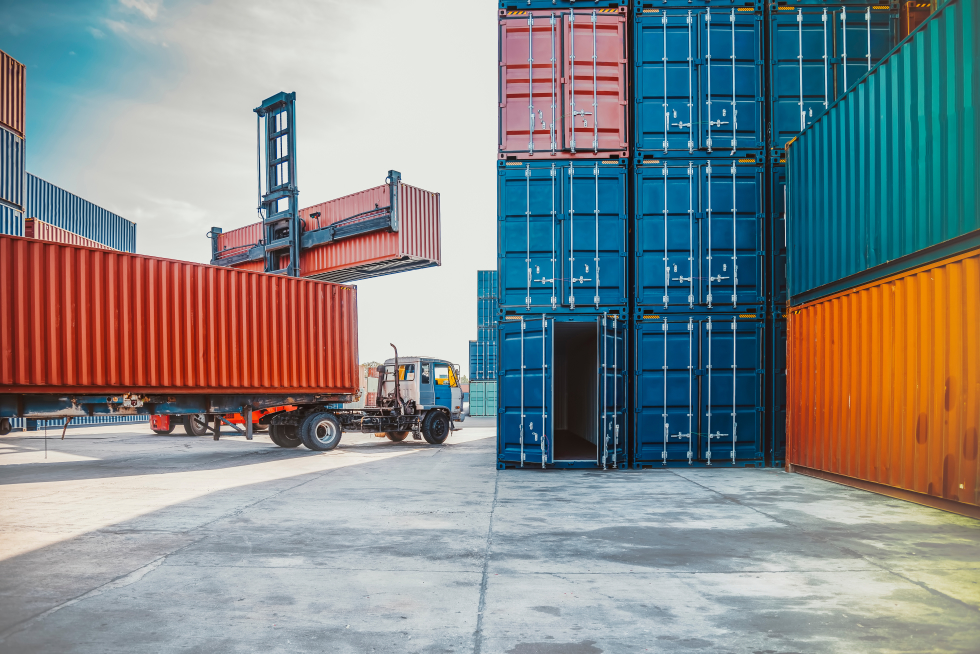Navigating Saudi Arabia's Customs Regulations
Discover seamless customs clearance and import regulations in Saudi Arabia. Explore trade potential with Export Portal's guidance.

Navigating the intricacies of Saudi Arabia customs regulations is essential for importers and exporters looking to engage in trade with the kingdom. From documentation requirements to compliance standards, adhering to Saudi customs guidelines ensures smooth transactions and avoids potential delays or penalties.
Saudi Arabia Import Requirements
Before initiating any import process into Saudi Arabia, it's crucial to understand the necessary documentation and procedures. The following documents are typically required:
Essential Import Documents
To initiate the import process smoothly, importers must ensure they have the following key documents in order:
- Commercial Business Invoice: The commercial invoice serves as a detailed record of the transaction between the buyer and the seller. It includes essential information such as the names and addresses of the consignee and consignor, description of goods, quantity, unit cost, total value of the shipment, and more.
- Bill of Lading or Airway Bill: The bill of lading (for sea shipments) or airway bill (for air shipments) provides crucial information about the shipment, including the details of the carrier, the port of loading and discharge, description of goods, and consignee details.
- Certificate of Origin: This document certifies the country of origin of the goods being imported. It may be required to qualify for preferential duty rates under trade agreements or to meet specific Saudi Arabia customs regulations.
- Insurance Documents: If the goods are insured during transit, insurance documents must be provided to the customs authorities. These documents should detail the coverage and terms of the insurance policy.
- Packing List: A packing list provides a detailed breakdown of the contents of each package in the shipment. It includes information such as the number of packages, description of goods, weight, and dimensions.
Special Requirements for Certain Goods
Depending on the nature of the imported goods, additional requirements may apply:
- IECEE Certificate: Certain products may require an IECEE certificate to demonstrate compliance with specific standards or Saudi Arabia customs regulations.
- Registration of Goods: Some imported goods may need to be registered with relevant authorities before they can be cleared by customs.
Customs Clearance Process in Saudi Arabia
The customs clearance process in Saudi Arabia is a critical step for importers, ensuring the lawful entry of goods into the country while adhering to regulatory standards. Understanding the intricacies of this process is essential for importers to streamline operations and avoid delays or complications.
Preparing Documentation
Before initiating the customs clearance process, importers must ensure they have all necessary documentation in order. This includes:
- Commercial Invoice: A comprehensive record of the transaction detailing the goods, their value, and other relevant information.
- Bill of Lading or Airway Bill: Providing crucial shipment details for sea and air freight respectively.
- Certificate of Origin: Certifying the country of origin of the goods.
- Insurance Documents: Detailing the coverage and terms of the insurance policy if goods are insured during transit.
- Packing List: Offering a breakdown of the contents of each package in the shipment.
Submission and Declaration
Importers are required to submit the customs declaration form at least 48 hours before the shipment arrives at the port of entry. This declaration can be completed directly or through a customs broker, utilizing the Fasah platform for online submission.
Leveraging Fasah Platform
The Fasah platform plays a pivotal role in the customs clearance process, offering importers a streamlined digital interface to manage documentation and track shipment status. Through Fasah, importers can submit required documents, monitor progress, and receive real-time notifications regarding their shipment's clearance status.
Compliance and Verification
Once the customs declaration is submitted, customs authorities conduct thorough verification processes to ensure compliance with regulatory standards. This may involve inspecting documentation, verifying product descriptions, and assessing tariff classifications.
Duties and Tariffs
Importers should be aware of applicable customs duties and tariffs imposed on imported goods. While certain consumer items are duty-free, others may attract specific duty rates based on their classification and intended use.
Special Considerations
Importers of certain goods, such as pharmaceuticals, food products, and electronics, may encounter additional regulatory requirements. These could include product testing, certification, or registration with relevant authorities to ensure compliance with safety and quality standards.

Saudi Customs Duties and Regulations
Understanding Saudi customs duties and Saudi Arabia customs regulations is vital for importers to ensure compliance and avoid penalties. Here are some key points to note:
- Most standard consumer items are duty-free, but certain products may incur customs duties of 20% or 12% ad valorem based on their classification.
- Special concessions and reductions may apply to imports from Arab League states with bilateral trade agreements.
- The Harmonized System (HS) coding system is utilized for customs classification, facilitating international trade.
Conclusion
Adherence to Saudi Arabia customs regulations and customs clearance procedures is paramount for successful trade operations. By understanding documentation requirements, utilizing digital platforms like Fasah, and staying updated on customs duties and regulations, importers can navigate the Saudi market efficiently and compliantly, ensuring seamless trade transactions.
At Export Portal, we recognize the importance of facilitating international trade and providing exporters with the tools and resources they need to thrive in global markets. With our comprehensive platform and expert guidance, businesses can access valuable insights, streamline documentation processes, and connect with trusted partners to navigate the complexities of importing goods into Saudi Arabia.
Whether you're a seasoned importer or exploring new opportunities in the Saudi market, Export Portal is your trusted ally, committed to empowering businesses and fostering growth through seamless trade facilitation. Join us today and unlock the potential of international trade with Saudi Arabia.






Comments 0